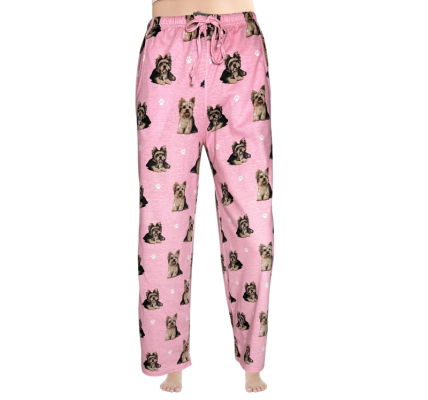Pajamas are our go-to for comfort and relaxation, but how often should we be washing them? This question not only impacts personal hygiene but also affects the longevity of your favorite sleepwear. In this article, we’ll delve into the factors that determine how many times you can wear pajamas before washing and offer tips on maintaining both cleanliness and fabric quality.
Understanding Pajama Fabric and Wear Frequency
Types of Pajama Fabrics
Different fabrics have different washing requirements. Cotton pajamas, for instance, are breathable and comfortable but can accumulate sweat and oils quickly. Synthetic fabrics like polyester are less absorbent but may harbor bacteria if worn multiple times between washes. Silk pajamas, known for their luxurious feel, are delicate and should be washed after every few wears to maintain their quality.
Factors Influencing Washing Frequency
How many times do you wear pajamas before washing? Several factors influence how often you should wash your pajamas:
- Personal Hygiene: The more you sweat or if you have oily skin, the more frequently your pajamas should be washed.
- Health Considerations: If you’re ill or have been exposed to illness, washing pajamas after each wear is advisable to prevent the spread of germs.
- Activity Level: If you’re particularly active or engage in activities that cause you to sweat more, consider washing your pajamas more often.

The Science Behind Pajama Hygiene
Bacteria and Odor Development
Pajamas can become a breeding ground for bacteria if not washed regularly. Bacteria thrive in warm, moist environments, making sleepwear a potential hotspot. Over time, accumulated sweat, oils, and dead skin cells can lead to unpleasant odors and potential skin issues.
Fabric Wear and Tear
Frequent washing of pajamas may cause wear and tear, especially with delicate fabrics. However, not washing them often enough can lead to hygiene issues. Finding a balance between cleanliness and fabric care is crucial.
Recommendations for Pajama Washing
General Guidelines
As a general rule, it’s advisable to wash your pajamas after every 3 to 4 wears. However, if you’ve been sweating heavily or if your pajamas have visible stains, wash them sooner.
Washing Instructions for Different Fabrics
- Cotton: Can be washed in warm water. Cotton is durable, so regular washing won’t cause significant damage.
- Synthetic Fabrics: Best washed in cold water to maintain elasticity and prevent color fading.
- Silk: Hand wash in cold water with a gentle detergent to preserve the fabric’s sheen and softness.
How Often Should You Replace Your Pajamas?
Signs It’s Time for a New Pair
Even with proper washing, pajamas don’t last forever. Look out for signs such as fading, thinning fabric, or elastic wear. When your pajamas no longer provide comfort or support, it’s time to invest in a new pair.
How to Extend the Life of Your Pajamas
- Use a Gentle Detergent: Harsh chemicals can degrade fabric quality over time.
- Avoid High Heat Drying: Opt for air drying or a low heat setting to prevent fabric shrinkage and damage.
- Store Properly: Keep pajamas in a cool, dry place to avoid mold and mildew growth.
Maintaining Pajama Hygiene Between Washes
Quick Freshening Tips
How many times do you wear pajamas before washing? If you need to extend the wear between washes, consider these tips:
- Use Fabric Fresheners: Lightly spray with a fabric freshener to combat odors.
- Air Out Pajamas: Hang them in a well-ventilated area to reduce moisture and odors.
Alternative Options for Freshness
If traditional washing isn’t an option every time, you can use:
- Pajama Spray: Specialized sprays can help reduce bacteria and keep pajamas smelling fresh.
- Hand Sanitizer: Spot treat any specific areas with a fabric-safe hand sanitizer to kill germs.
Tips for Choosing the Right Pajamas
Factors to Consider When Buying Pajamas
When shopping for new pajamas, consider these factors to ensure you get the best fit for your needs:
- Fabric Type: Choose based on your comfort preferences and climate. Cotton is great for warm weather, while flannel is ideal for cooler temperatures.
- Fit and Comfort: Ensure that the pajamas fit well without being too tight or too loose. Comfort is key for a good night’s sleep.
- Quality: Invest in high-quality pajamas that can withstand frequent washing without losing their shape or softness.
Sustainable and Eco-Friendly Options
If you’re concerned about environmental impact, consider eco-friendly pajamas made from organic cotton or recycled materials. These options are not only better for the planet but also often feature sustainable manufacturing processes.

The Impact of Pajama Hygiene on Overall Health
How Pajama Cleanliness Affects Your Skin
Wearing unwashed pajamas can contribute to skin issues such as acne or irritation, especially if you have sensitive skin. Bacteria and sweat buildup can lead to clogged pores and skin infections. Keeping your pajamas clean helps minimize these risks and promotes healthier skin.
Sleep Quality and Pajama Hygiene
A clean set of pajamas can contribute to better sleep quality. When your sleepwear is fresh and free of odors or allergens, you’re more likely to have a restful night. The psychological comfort of wearing clean pajamas can also enhance relaxation and overall sleep experience.
Expert Tips for Maintaining Pajama Freshness
How to Handle Pajamas with Stains
Treating stains promptly can prevent them from setting in and make washing easier. Use a stain remover suitable for the fabric type, and pre-treat the affected area before laundering. For stubborn stains, a gentle scrubbing with a soft brush may be effective.
Dealing with Persistent Odors
If your pajamas retain odors even after washing, consider using a mix of baking soda and water to pre-treat the fabric. Adding a cup of white vinegar to the wash can also help neutralize lingering smells.
Understanding the Lifecycle of Your Pajamas
When to Replace Old Pajamas
While proper care can extend the life of your pajamas, they will eventually wear out. Common signs that it’s time to replace them include visible damage, loss of elasticity, or persistent odors that don’t go away with washing.
Sustainable Practices for Disposing of Old Pajamas
When it’s time to replace your pajamas, consider eco-friendly disposal options. Donate gently used pajamas to local charities or recycle them if they are beyond repair. Many textile recycling programs accept old clothing and repurpose the materials.
Practical Tips for Managing Pajama Laundry
Creating a Pajama Washing Routine
Establishing a regular washing routine can simplify pajama care. Decide how often you will wash your pajamas based on your lifestyle and personal hygiene needs. Consistency is key to maintaining both cleanliness and fabric integrity.
Using Laundry Bags for Delicate Fabrics
For delicate fabrics like silk, use a mesh laundry bag to protect them during the wash cycle. This helps prevent snags and reduces the risk of damage.

Balancing Cleanliness and Comfort: A Guide to Pajama Care
How often should you wash your pajamas? The answer depends on several factors, including the fabric type, your personal hygiene habits, and the frequency of wear.
Fabric Matters:
- Natural fibers: Cotton, linen, and silk are generally more breathable and absorbent than synthetic fabrics, making them less prone to odor-causing bacteria. However, they may still need regular washing, especially if you sweat heavily or have sensitive skin.
- Synthetic fibers: Polyester, nylon, and rayon are often used in pajamas for their durability and moisture-wicking properties. While they may resist odors to some extent, regular washing is still necessary to prevent the buildup of bacteria and allergens.
Personal Hygiene:
- Sweat and body oils: If you sweat heavily or have oily skin, you may need to wash your pajamas more frequently. These factors can create an environment that encourages bacterial growth.
- Skin sensitivity: If you have sensitive skin, it’s important to keep your pajamas clean to avoid irritation. Regularly washing them can help remove allergens and irritants.
By following these tips, you can ensure that your pajamas remain clean, comfortable, and long-lasting.




